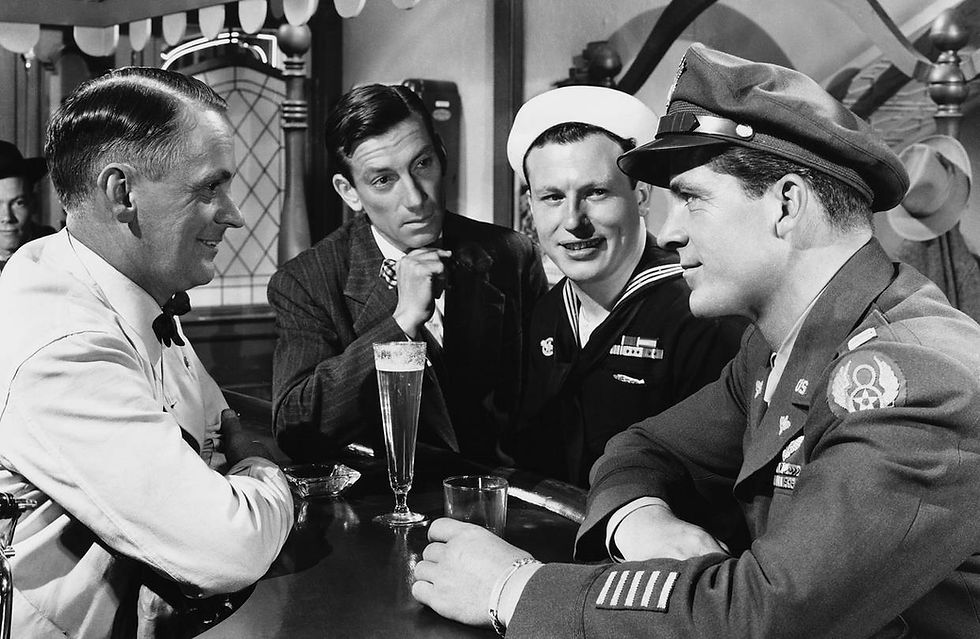The Return of the Anti-Hero
- Joseph Pryweller
- Dec 3, 2019
- 3 min read
Updated: Dec 16, 2019

Does American need an anti-hero?
We live in a time of partisan bickering, of a deepening divide between rich and poor, of random shootings and random meanness. You'd think this would call for a fictional hero to lead us masses out of humanity's sludge.
Instead, this pre-holiday season, we had the Joker. A surprise hit that has lingered in theaters in December surrounded by sparkly Christmasy fare. A character study focused on Joaquin Phoenix (no other character in the movie really matters), who lives with his abusive mother, laughs like a hyena uncontrollably, has depression and hallucinates, can't keep his job as a paid clown and is generally a difficult person to be around.
Plus, he kills people.
I was riveted to the screen for Joker's plus-two-hour runtime, even though I knew the movie itself was a bit one note, ignoring character development and greater social comment as it followed Joker into the pit of illness and icky interaction. But Joker can tug at the proverbial heartstrings, as he is one of society's faceless and is criminally ignored.
One scene in particular gets you. Arthur Fleck, the man who becomes Joker, is purportedly starting a relationship with a neighbor who is kind to him. They take long walks in Gotham. After a particularly bad day, he enters her apartment and waits for her. When she comes out of her room, she is horrified that he is there. Arthur has imagined the romance; she tells him to get help. You feel your sense of hope for him circling the storm drain.
Leaving the theater after seeing Joker's danse macabre near the end of the film as he embarks on a crime career, you feel dirty and used. But you still empathize with the anti-hero cast out of society and forced into the darkness.
There are many examples of other anti-heroes in movies, a theme this blog may explore in more depth. The 1960s is the era for that, another turbulent time with protests against the war in Vietnam and race riots shading the country. Into that chaos came the lovable young killers Bonnie and Clyde, the vicious but grandfatherly Wild Bunch, the middle-finger-pointing Easy Riders, Kubrick's A Clockwork Orange. The early '70s brought us the Godfather family and Scorsese's Taxi Driver, among others.
But anti-heroes are not exclusive to times of societal upheaval. I recently watched Luc Besson's La Femme Nikita, a 1990 French film with Anne Parillaud trained as an assassin after being plucked from her humble beginnings as a drug abuser who kills a policeman in cold blood after breaking into a pharmacy to get her fix. The scene, the first in the movie, allows the camera a close up of a young policeman asking her to drop her gun. The camera moves back as she instead fires the gun into his jaw.
Later versions of the film and a subsequent, short-lived television show was far less violent and unvarnished. In the first movie, Parillaud's Nikita is feral, barely human who talks in mumbled growls and has a bone-jarring laugh (parallels to Joker, maybe?). She is not a lovable character. Yet, you feel for her, as she is treated rudely by her handlers and forced to kill at will without knowing the victim -- whether man or woman.
Of course, she rebels at the end after another assassin goes to far. But during the movie, I found it hard to root too deeply for her, a cop-killing miscreant, but couldn't help myself to see how her life had changed due to her training.
Maybe that's the point. You want to hate the anti-heroes but you instead root for them out of sympathy for their plight and how they are treated by others. You transfer your disgust to other characters or to the world at large. It is unsettling but can lead to a memorable movie experience.




Comments